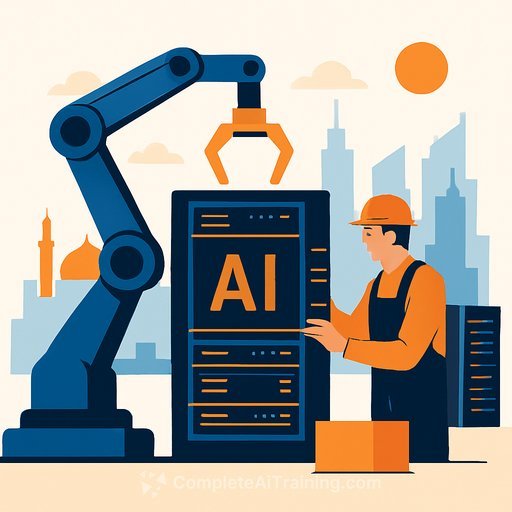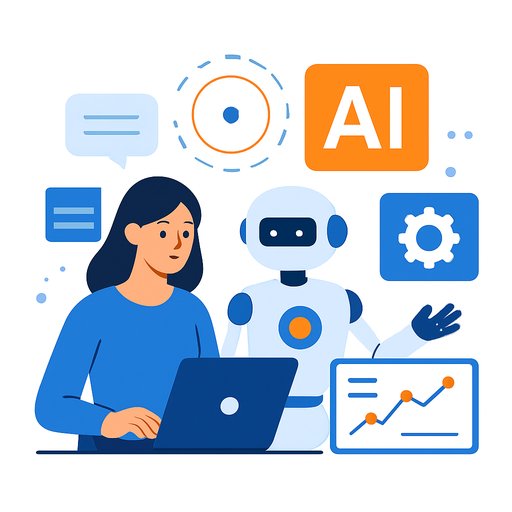How Agentic AI Could Unlock a £5.12bn Boost for UK Software-and What Boards Must Do Now
GitLab's latest research puts hard numbers behind AI-enabled software innovation in the UK: a potential £5.12bn (US$7bn) annual impact. Companies deploying AI in software report 53% revenue growth and 54% productivity gains, largely by freeing developers from routine tasks-an average of 417 hours saved per developer per year across a 465,000-strong workforce.
AI in software is now a board-level agenda item. 89% of executives say AI-driven development is core to business strategy, 90% report explicit board support, and 78% are willing to allocate more than half of IT budgets to software-led growth.
Agentic AI meets enterprise risk: progress with guardrails
Adoption pressure is high-86% expect agentic AI to be the industry standard within three years-but so are the risks. 74% of executives flag security concerns, with 61% worried about cyberattacks and 51% focused on data privacy.
In response, 57% of organisations are standing up governance frameworks, policy, and third-party audits. As Louise Fellows, Vice President of UK at GitLab, notes: "AI-fuelled software innovation is an undeniable source of competitive advantage and economic impact, with 89% of executives in the UK saying that it's now a core business priority."
What good security looks like for agentic AI
- Adopt clear AI governance: policy, model risk tiers, human-in-the-loop checkpoints, and audit trails mapped to regulation. See the UK's ICO guidance on AI and data protection.
- Threat-model agent workflows: prompts, tools, external API calls, and data movement. Add red teaming, output filtering, and rate limits.
- Secure data by design: least-privilege access, PII minimisation, synthetic data for training, and rigorous retention policies.
- Supply chain controls: model provenance, SBOM for AI components, and third-party evaluations.
- Incident readiness: bias/abuse escalation paths, rollback plans, and continuous monitoring on usage and drift.
Human creativity remains the force multiplier
Current workflows split work roughly 75% human / 25% AI. 72% of executives want humans to remain at least half of the effort, signaling that AI complements, not replaces, developers.
Skills are priority-one: 89% of leaders emphasise training for human-AI collaboration, and 38% cite developer upskilling as AI's most valuable benefit. Emilio Salvador, GitLab's Vice President of Strategy and Developer Relations, sums it up: developers who can think systematically about human-AI workflows will be indispensable.
As Fellows adds, executives value human creativity and strategic vision-universally. This isn't about replacing developers; it's about amplifying what people do best.
ROI is shifting from cost savings to capability
Boards are moving past "hours saved" as the only signal. 46% of firms now weigh enhanced problem solving in their ROI, while 44% prioritise faster time-to-market and stronger customer experience.
The takeaway: fund AI where it compounds learning cycles and customer value, not just where it trims budget lines.
12-month board agenda: from pilots to production value
- Set outcome metrics: lead time for changes, deployment frequency, change failure rate, and customer NPS tied to AI-enabled features.
- Start with high-volume, rules-heavy workflows: code review, test generation, documentation, incident runbooks, and support triage. Track hours returned and defect reduction.
- Build a secure AI platform: model gateways, data access controls, evaluation pipelines, and observability for prompts, outputs, and tool use.
- Operationalise governance: a cross-functional council (security, legal, product, engineering) with decision rights, risk heatmaps, and evidence for audits.
- Upskill at scale: train developers, product managers, and security teams on AI orchestration and prompt patterns. Explore role-based programs at Complete AI Training.
- Align incentives: OKRs that reward shipped customer value, safe automation, and reusable AI components-rather than vanity metrics.
Why early movers will win
With 86% of executives expecting agentic AI to become standard within three years, the window for advantage is open but shrinking. The leaders blend AI with human expertise, tie software bets to business value, and put guardrails in place from day one.
Do that, and the £5.12bn opportunity stops being a headline and starts showing up in your P&L.
Further reading
- Practical oversight and privacy: UK ICO's AI and data protection guidance
- Secure development practices for AI systems: NCSC guidelines
Your membership also unlocks:





AI Capex on the Hot Seat: Apollo Exec's No Comment on Vendor Financing and Capex Recycling Stirs Transparency Debate